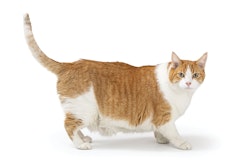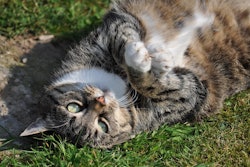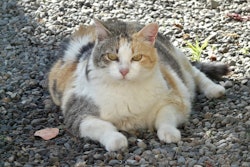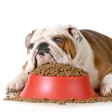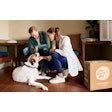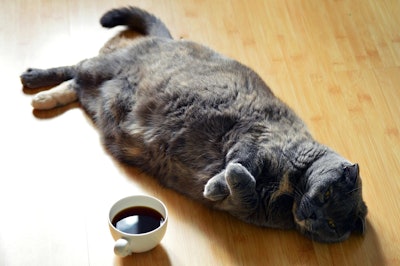
Pet owner awareness of healthy body weight and body condition scoring (BCS) remains limited, according to the Association for Pet Obesity Prevention’s (APOP) 2024 Pet Obesity & Nutrition Opinion Survey. While more pet owners now identify their pets as overweight or having obesity compared to 2023, few report receiving BCS assessments from their veterinarians, signaling persistent communication challenges.
In 2024, 55% of cat owners and 51% of dog owners described their pets' body condition as ideal — down from 57% and 66% in 2023, respectively. Meanwhile, 33% of cat owners and 35% of dog owners categorized their pets as overweight or obese, reflecting growing recognition of weight issues.
However, just 40% of cat owners and 45% of dog owners said they are familiar with BCS, and even fewer recall a veterinarian providing one. Only 27% of dog owners and 19% of cat owners said their vet had ever given them a BCS rating.
“These findings highlight a communication gap, particularly among cat owners, which may reflect less frequent veterinary visits or a lack of formal discussion during routine exams,” the report noted.
Despite this, the majority of pet owners appear open to discussions around weight:
- 69% said they did not feel uncomfortable being told their pet needed to lose weight.
- 12% reported discomfort or embarrassment.
- 17% said the conversation had never come up.
Trust in veterinary advice remains high — 86% of pet owners said they believe their vet would be comfortable discussing obesity, while only 4% said their vet would not.
Still, veterinary professionals report mixed comfort levels when addressing obesity:
- 60% said they always feel comfortable.
- 38% said “it depends.”
- 1% said they never feel comfortable.
Obesity terminology
Terminology may contribute to the communication gap. While veterinary teams use terms like “overweight,” “obese,” and “fat,” pet owners often recall more casual descriptions such as “chonky,” “fluffy,” or “well-fed,” potentially downplaying the health risks of excess weight.
“These terms can blur the clinical significance of excess adiposity and unhealthy body condition,” the report stated. APOP recommends using clear, medically accurate, and compassionate language when addressing pet obesity.
The survey also revealed insights into weight loss strategies:
- 62% of dog owners and 53% of cat owners have tried to help a pet lose weight.
- 16% of dog owners and 25% of cat owners reported using a therapeutic weight-loss diet.
- Roughly one in three pet owners said they would consider using a prescription weight-loss drug, if proven safe, effective, and affordable.
The 2024 survey included responses from 581 individuals: 322 U.S. pet owners, 134 veterinary professionals and 144 international respondents. This report focuses on U.S. pet owner data.
Adapted from a press release.


